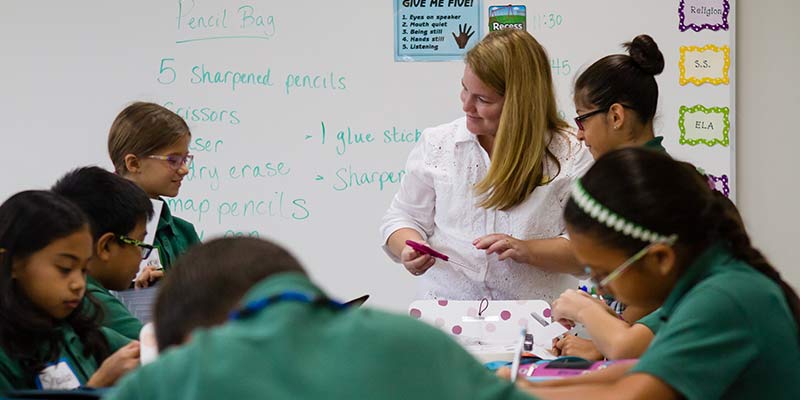In the course that begins, the implementation of the LOMCE will be concluded, with its application in the 4th year of ESO (Secondary) and 2nd year of Baccalaureate. However, with regard to the subject of Religion, the interpretation of the 17 Autonomous Communities draws a picture of absolute vagueness, lack of definition and confusion, which threatens the rights of students, parents and teachers.
- Francisco Javier Hernández Varas
President of the Federation of Independent Trade Unions of Education (FSIE)
The regulation of the subject of Religion established by the LOMCE received from the first moment the express rejection of the Spanish Episcopal Conference, the heads of the centers, the teachers of Religion, the unions and the associations of Catholic parents.
And if we had to look for a qualifier of the current situation, once applied at the regional level, I would say that it is of absolute vagueness, lack of definition, uncertainty, insecurity, confusion and other similar synonyms. Together with others such as harassment, threat, persecution and other similar ones that affect the subject, the teaching staff and, of course, the students and their parents.
What does this course have in store for us?
We are not going to go into the fact that this subject is not a concession of the Administration but a right of parents and students, nor into the high number of students who choose it, nor into the importance of the subject as a fundamental element of the integral development of the person, nor how it is the curriculum of the subject. These aspects are sufficiently well known to religion teachers. What I wanted to summarize here is the current situation and the panorama of the subject and its teachers.
From the very beginning we warned in these pages of the risk posed by the treatment of Religion as a subject. specificThis is a way of skipping its character as a core subject that corresponds to it according to the Constitution and the State Agreements. It thus becomes a subject more of autonomous than national scope, since its regulation depends above all on the interpretation that each Autonomous Community makes of the regulations and of the very obligatory nature of the subject. This is where the government missed the opportunity to definitively solve the problem of Religion in schools.
Conflicts arise, above all, from the development of the curriculum of the different educational stages in each Autonomous Community: teaching configuration and distribution of subjects, timetables, evaluation and enrollment, mainly. The 17 Autonomous Communities draw a disparate political map and a different ideological and political position, so that the educational and labor panorama is unequal.
Reduction of hours and faculty
This summer has been full of demands, negotiations, uncertainties and also relevant rulings, which teachers should be aware of.
In September, the Junta de Andalucía will reduce one teaching hour of the subject in 3rd ESO, in continuity with the reduction already implemented in Primary, which will mean a decrease of 747 hours of the subject. On the one hand, this unilateral decision by the Board will mean an immediate economic disadvantage for teachers, which will have a direct impact on the paychecks of hundreds of workers whose contracts are already precarious. Religion teachers in Andalusia continue to see their working conditions worsen year after year.
The only explanation given by the Board is this statement from its spokesperson: "We understand that there are other subjects that require more time to have better educated children".The school's policy, which clearly undervalues the choice that parents and students freely make in this subject.
In the Balearic Conselleria of Education can leave 55 Religion teachers on the street or with only a half day, i.e., one out of three teachers of this subject, which is a real hidden ERE.. The conflict started with the arrival of the new executive branch of the PacteThe school decided to reduce the Religion schedule from one and a half hours per week to one hour.
In the meantime, different solutions are being negotiated, such as interim positions, early retirements or the sharing of hours among all, since the Conselleria refuses to allow Religion teachers to teach other disciplines, as has been the case since 1982.
In other places, the lack of dialogue has forced them to go to court. In Aragon, for example, the TSJ of Aragon has rejected the precautionary measures requested by the bishops against the Instruction of the regional government that reduced the subject of Religion in Primary Education to a minimum of 45 minutes per week. The dioceses of Extremadura have also presented an appeal to the Supreme Court of Extremadura against the reduction of the weekly hours of Religion.
In a deliberate and sectarian way, situations are being propitiated to reduce to a minimum the subject and the religious fact in the Spanish school. And they are suffocating a well-trained, quality and vocational teachers, in an attempt to minimize their influence and advocating their disappearance.
From my point of view, now that we are talking about a Pact for the EducationWe must remember that this Pact has already been signed: it is the Spanish Constitution itself, the different Church-State agreements and the agreements between the government and other religious confessions. Perhaps we should take up again, along the lines of other European countries, the path of the modification of the organic law that leads to this complete nonsense.
Finally, to my fellow Religion teachers I would dare to ask them to have hope, to continue being as they have been so far an example of professionalism and good work, to know how to spread and convince parents and students of their message, to teach their students well so that everyone can see that they are improving and, finally, to continue fighting for their rights without losing sight of the objective and always in tune with the ecclesiastical hierarchy.








